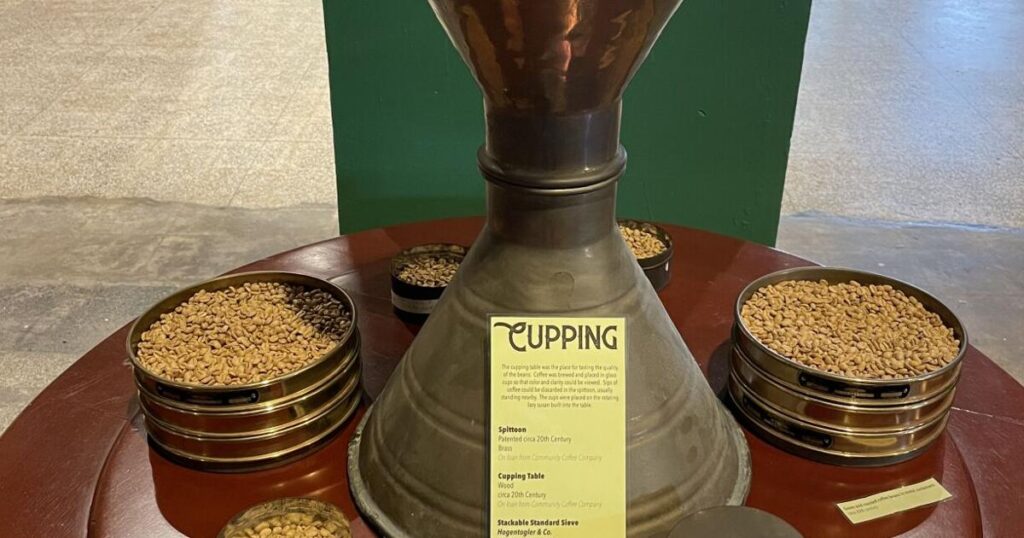International Coffee Corp., the Metairie-based trading house owned by the Madary family, is one of the last bastions of wholesale coffee trading in New Orleans, a city that once thrived as a hub for shipping and trading the unroasted beans.
It is now navigating one of the most turbulent periods in its half-century history.
Wholesale Arabica coffee recently hit a record high above $4.40 a pound, more than four times the price before the pandemic, after President Donald Trump placed 50% tariffs on Brazil, the world’s largest coffee producer. The uncertainty has scrambled International Coffee’s market.
“We’ve never seen a market like this,” said Matt Madary, who has been in the business for 37 years and took over running the family firm more than a decade ago.
International Coffee has deep roots in New Orleans. Matt Madary’s father, William Madary, a longtime trader with commodities giant J. Aron, set up International Coffee on Magazine Street in 1977 when J. Aron relocated most operations to New York City before being acquired by Goldman Sachs.
Over the decades, International Coffee has thrived, with five of William Madary’s dozen children still working at its Metairie headquarters. It is one of only two major coffee trading firms still operating at scale in New Orleans. The other is Westfeldt Brothers, which was founded before the Civil War. Together, they are the remnants of a once-thriving hub of warehouses and coffee exchanges along the Mississippi River.
Today, that legacy is being tested. Importers such as International Coffee are the ones who must pay the Trump administration’s levy at the port before passing it along to roasters, and Will Howard, a trader at International Coffee for most of his decadelong career, said the tariffs have created “so much uncertainty that people have no clue what’s going to happen down the road.”
The result, he said, is that they’ve curtailed purchases.
“They’re not buying,” Howard said. “They don’t want to be on the hook for coffee at 50% tariffs when it might drop in a month.”
Howard called the period “the least fun I’ve had during my time working in coffee.”
Historically roiled
The market’s uncertainty is reflected in the price difference between buying coffee now and contracts that would provide delivery months ahead of time.
Normally, coffee bought using those futures contracts cost more because they account for storage, financing and other expenses. But today, coffee that can be delivered immediately costs roughly 20 cents a pound more than contracts that would provide delivery in three months, a record premium. On shipments that are often measured in tens of thousands of pounds, the price differences add up quickly.
Richard Etkin, a longtime Miami-based coffee trader and analyst, said prices reflect “uncertainty of historic proportions,” which has left everyone from suppliers to traders, brokers, roasters and retailers reluctant to do business.
Howard added that industry participants are “hesitant to engage” in the market because the tariffs could change at any time.
“No one knows what’s coming next,” he said.
Though coffee trading is primarily a volume business, the market volatility in recent months has forced International Coffee to rely more on its decades of expertise and specialized skills.
A core part of that is the daily ritual of “cupping,” tasting and evaluating small samples of beans sent from growers around the world. In the Madary tasting room, traders sip, then spit, assessing aroma, flavor, acidity and body, much as sommeliers do in the wine business.
“My dad always said that’s where you find the value, around the cupping table,” Matt Madary said. Knowledge of coffee bean varietals has always offered an edge, but it is especially valuable now, when International Coffee can advise clients, such as specialty retailers, on alternative sources to maintain a consistent product.
The trajectory of U.S. coffee prices over the past half-decade underscores the precariousness of the current moment. While prices are well above $4 a pound now, in 2018, benchmark Arabica futures hovered around $1.20 a pound, buoyed by big Brazilian harvests and moderate global demand.
Prices gradually climbed in 2019, but it was the pandemic that first rattled the market. Lockdowns collapsed cafe and restaurant demand while boosting at-home consumption. By 2021, global supply-chain bottlenecks, shipping costs and container shortages pushed prices higher, with traders scrambling to hedge against further shocks. By late 2024 and early 2025, prices were hitting all-time highs.
Indeed, the pandemic accelerated a trend that had already seen coffee traders disperse around the country, while concentrating their warehousing and storage in the busier ports nearest to consumer centers. Then came the tariffs.
Howard emphasized the practical challenges the Trump tariffs now pose. “If the goal is to keep manufacturing in the U.S., it doesn’t make any sense,” he said, noting that Hawaii and Puerto Rico, the only coffee-growing regions in the country, produce less than 1% of domestic consumption.
The legal challenge to the tariffs adds another layer of uncertainty. Federal courts have found that Trump overstepped his authority under the International Emergency Economic Powers Act. The U.S. Supreme Court has scheduled arguments for next month, a case that could determine whether the tariffs remain or are rolled back.
High stakes
For International Coffee, the stakes are high. Trading firms operate on thin margins. A sudden rollback — or continuation — of tariffs could dramatically affect the firm’s business. Weather-related supply shocks, particularly in Brazil, only make things more challenging, forcing traders to bid aggressively for available beans.
The combination of tariffs, tight supplies and uncertain policy has created a near-unprecedented environment.
“Every day is a new calculation,” Madary said. “We’re constantly weighing prices, shipping delays and now the legal landscape. It’s exhausting, but we’ve learned to adapt.”
For Madary, the moment underscores the unique role of the city’s remaining traders and the family’s half-century legacy in coffee.
“We’ve been around for decades,” he said, “but nothing in our experience compares to this moment.”

